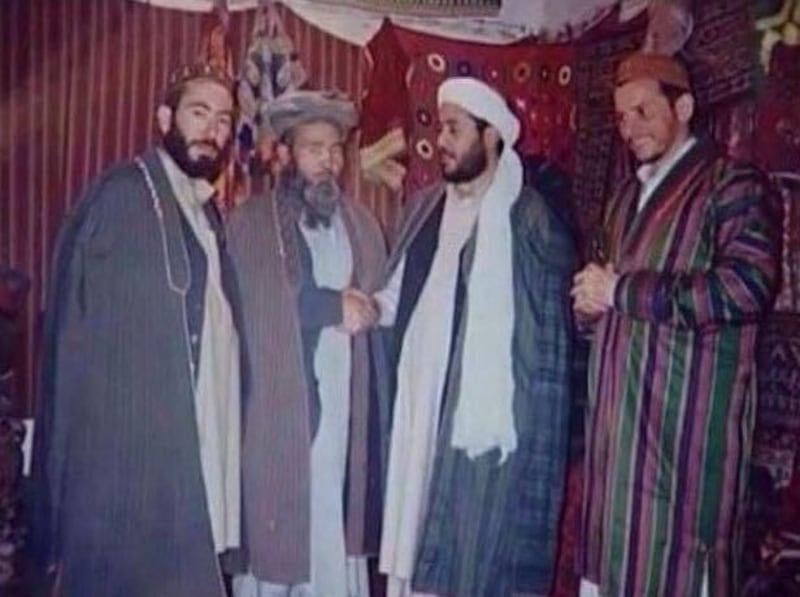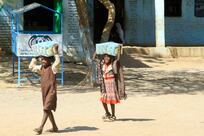Ramadan Abedi, the father of the Manchester suicide bomber who killed 22 people including seven children, accompanied the Libyan Islamist commander Abdulhakim Belhaj to a meeting with the Taliban in Afghanistan in the mid-1990s, The National can reveal.
A photograph of the two men with the hosts has been uncovered by this newspaper. Ramadan Abedi was a member of the Libya security services until he defected from the regime and fled the country in 1991. “Ramadan Abedi fought in Afghanistan, met Osama bin Laden and participated in some Al Qaeda operations against the Soviets. He remained in Afghanistan until 1993,” a Libyan official said.
Ramadan and Belhaj were leading figures in the Libya Islamic Fighting Group until 2008 when Libya issued an amnesty for members of the Al Qaeda affiliated movement. The UAE, Saudi Arabia, Egypt and Bahrain have designated Belhaj an individual who was a beneficiary of Qatari funding despite his links to extremism.
Ramadan Abedi and his son Salman, who carried out the attack in May, returned to Libya to join the uprising against Col Muammar Qaddafi in 2011.
Ramadan then joined a Tripoli militia that belonged to Belhaj’s Libya Dawn force that still controls a swathe of the city. Salman went back to the UK but visited Libya several times. He only returned to Britain from his last trip on May 18 and carried out the bombing less than a week later.
Ramadan, his wife Samia and another son Hashem, have remained in Tripoli and were detained after the Manchester attack.
British police yesterday declared for the first time that Salman Abedi was not acting alone when he carried out the bombing.
A senior investigating officer said his team was working with the Libya authorities to interrogate Hashem who is still in detention in Tripoli.
The inquiry is also attempting to establish who else was involved in training Salman in explosive handling and orchestrating the plot.
“We do believe that there are other people potentially involved in this. We do however believe further arrests are possible,” Russ Jackson, head of north-west counter-terrorism policing in Manchester said. “We are currently engaging with the Crown Prosecution Service and the Libyan authorities,” he said. “This is a live criminal investigation where central to it are 22 murdered people, with grieving families.”
Salman was previously described as acting alone in targeting Manchester Arena at the end of a concert by Ariana Grande, the American singer. The attack was a cynical attempt to kill young girls and their accompanying family members.
Now the officers think the attacker had help procuring, assembling and storing the explosives in a white Nissan Micra car in the city prior to the attack.
Libyan sources think Salman was trained in explosive handling by a unit at the Al Hadba prison in Tripoli. It was raided by government forces last year, revealing training materials and classrooms where bomb making and explosives handling techniques were taught.
Belhaj is close to the Qatar-based Libyan cleric Ali Al Sallabi, the spiritual leader of Libya’s Muslim Brotherhood, who is also on the Arab quartet's list of 59 individuals and entities connected to terrorism and linked to Qatar.
Since the Libyan uprising, Qatar funnelled much of its arms shipments and support to Libyan armed groups through Al Sallabi and his brother Ismail Al Sallabi, who is a leader of the Benghazi Defense Brigades, a grouping aligned with Ansar Al Sharia, an Al Qaeda affiliate in Libya.





